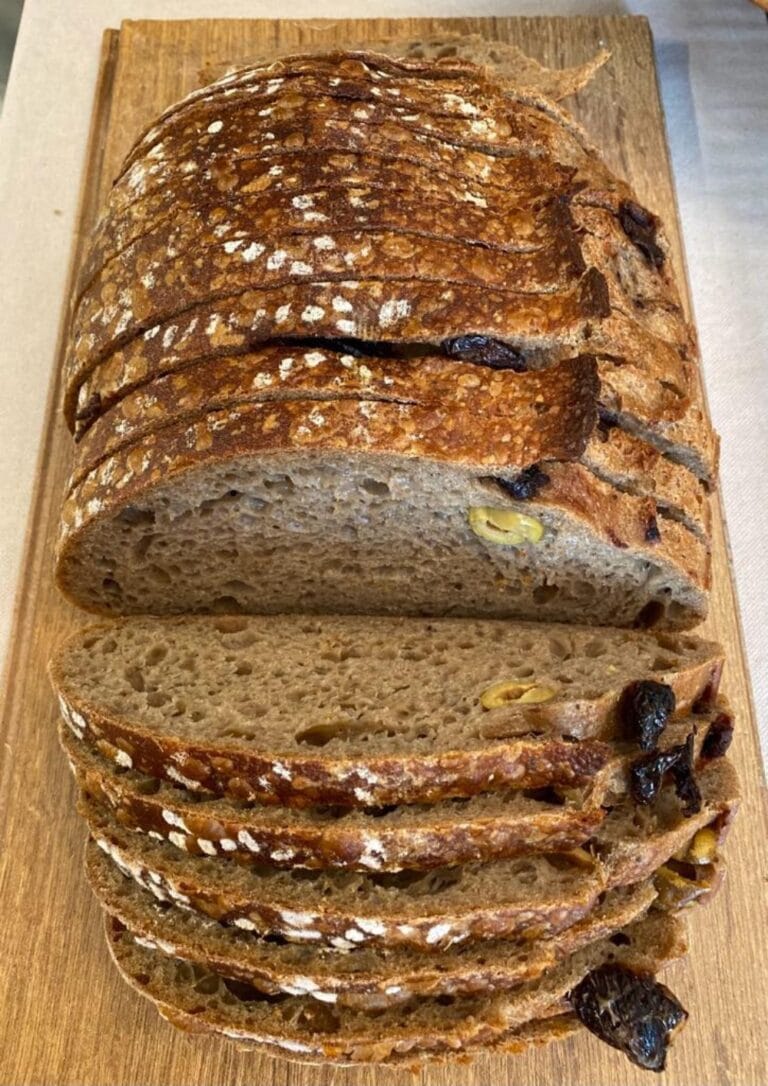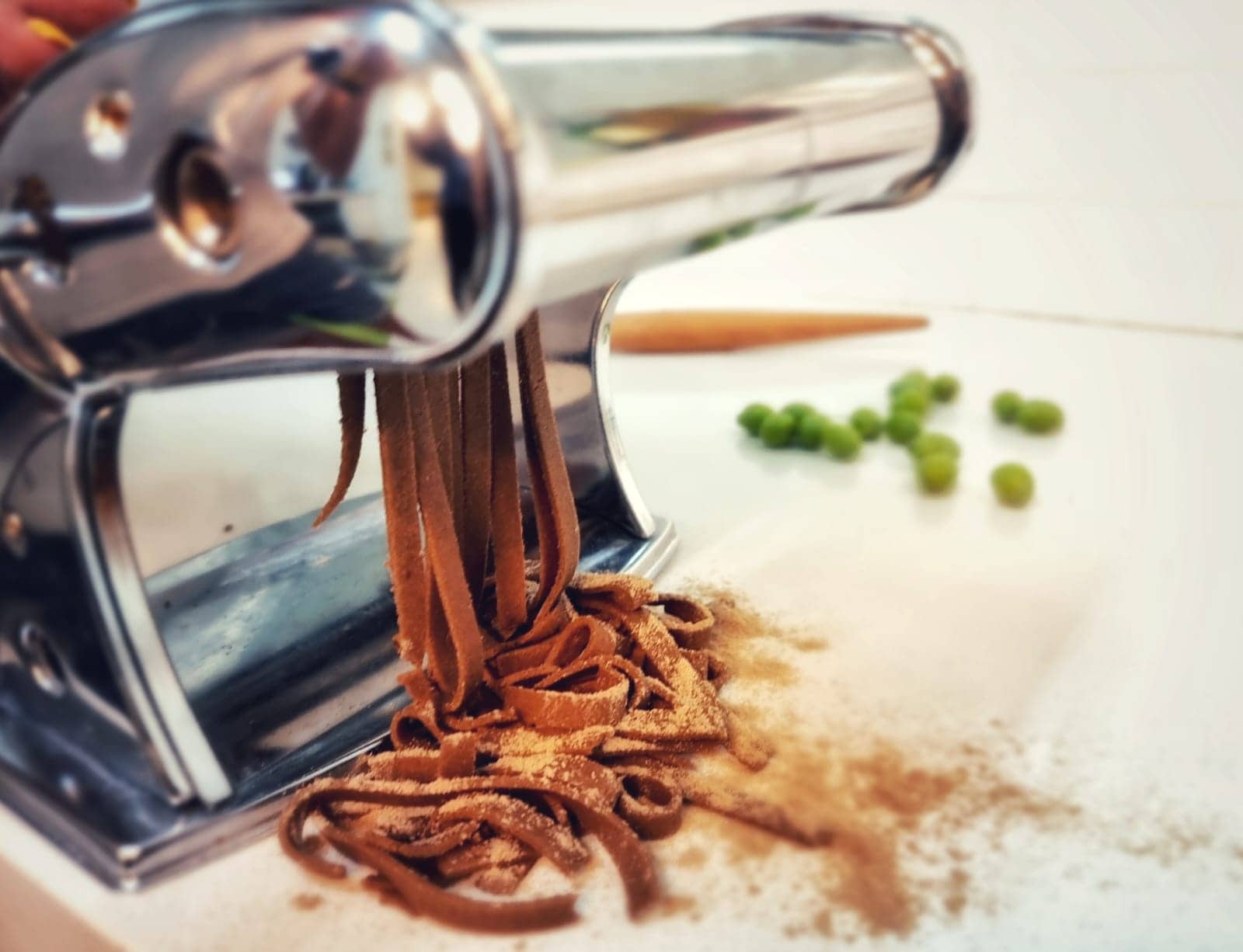Converting olive waste into gluten-free flour – ISRAEL21c
Olive farmers spend time, energy and money growing their crops to make oil.
But after the olives are pressed for their juice, the remaining 85 percent usually ends up being burned or buried because, in fact, it is useless. And it has poison, and it has acid, and it smells.
After 15 minutes from the time the olives are pressed in the industrial mill, the waste called pomace begins to oxidize.
Nutrients disappear, become unsuitable for use by humans – or animals – and cannot be used as fertilizer because they pollute the soil.
The olive is an ancient crop, mentioned many times in the Bible, and there is the oldest known mill in Matera, Italy, dating back to the fourth century BCE.
Yet all the while, growing olive pomace into a viable, commercial product remains difficult.
Win-win
PhenOlives, an Israeli startup, has created a new breakthrough for farmers and factories that crush 95% of all olives into oil.
It has developed a mechanical method to save the waste product in a hard window before it oxidizes, and turn it into gluten-free flour and other commercial products.
PhenOlives produces olive oil with a “total solution” – it applies its patented machine to transform a mountain of aromatic residues into useful, edible, marketable and profitable products.
This could be a game changer for the industry and could give olive farmers more income.

There will no longer be trucks lined up at olive centers to collect tons of produce for disposal, says Chen Lev-Ari, the company’s CEO.
Instead, the trucks will deliver high-fiber, low-calorie flour to food manufacturers to turn into bread, pasta, crackers, cookies, brownies, pizza.. .
Privacy policy
So what exactly is progress? Well, that’s a secret.
Lev-Ari says they have developed a machine that separates olive waste into three parts – pulp, black water (waste water from pressing) and seeds.
This process is completely natural, does not use chemicals or additives, and is easily integrated into the existing olive grinding process. After the cloth is removed, it is dried and ground into a powder.
But Lev-Ari will not enter fully. The technology has been patented in Israel and is about to be patented in Europe, he tells ISRAEL21c.
Mill owners in Spain, Greece, Italy and Portugal, among the biggest olive-producing countries in Europe, are upset at the sight, according to Lev-Ari.
He says: “It’s amazing to see how they behave. “They are amazed in a way that does not surprise us, but gives us great confidence. As far as we know, we are the only company in the world that has a solution to stop oxidation in the olive oil production process.”
Solving Israel’s problems
So how did they find a way to repurpose olive waste? Lev-Ari says: “Perhaps this is the way Israelis view problems. “We look at the whole problem and break it down into smaller parts.”
Lev-Ari, with a background in product and supply chain management and a special interest in agriculture and recycling, started his olive journey in 2019.
He spent three years researching and developing methods for processing pomace and founded PhenOlives in 2022.

It was important to find a solution that did not turn the olive leaves into a gluten-free flour. It was all or nothing – they had to deal with all 85% of the olives that are now useless. Olive mills wanted waste taken off their hands completely, and that’s what PhenOlives promises to do.
Lev-Ari said the company, which is based at the InnoValley Innovation Center in the Beit She’an Valley, is already in talks with major olive producers in the hope of establishing strategic partnerships.
Lev-Ari met with many food manufacturers in Israel and Europe to discuss how olive flour can be used as a gluten-free ingredient, like almond or chickpea flour. The company has several ongoing pilot projects, and works with local chefs to develop a range of new flavors.
Nutritious food
Olive powder will be PhenOlives’ first commercial product. Lev-Ari can’t wait to show me the brownies, cakes and other things baked with it.

Often, the flour will be mixed with wheat and other types of culture. It’s gluten-free, which means it doesn’t have the elasticity or water-retaining properties needed to make bread, but it works well as a weak ingredient in 80/20 mixes and other types.
It is good as 100% flour for crackers and can be used at 50% for pasta, muffins and pizza crust, and 30% for cakes and brownies. And it boasts all the health benefits of olive oil.
The company is researching other uses for the leaves, such as food ingredients and dyes, and even pet food. It also looks at ways to use nutritious black olive juice and seeds. The latter could be used by non-food industries such as heat and power generation.
PhenOlives received $760,000 in grants from the Israel Innovation Authority. “Furthermore, we are currently raising investment to support the installation of the first PhenOlives systems in Europe, to start selling olive powder, and to develop new products from leaves and black water,” said said Lev-Ari.
For more information, click here.
#Converting #olive #waste #glutenfree #flour #ISRAEL21c
